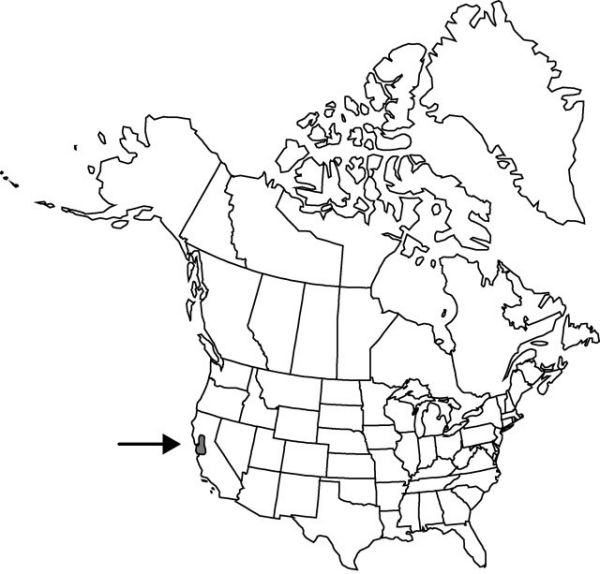Difference between revisions of "Trillium chloropetalum var. giganteum"
Aliso 4: 88. 1958.
Endemic
Basionym: Trillium sessile var. giganteum Hooker & Arnott Bot. Beechey Voy., 402. 1840
Treatment appears in FNA Volume 26. Mentioned on page 107.
FNA>Volume Importer |
imported>Volume Importer |
||
| (4 intermediate revisions by 2 users not shown) | |||
| Line 6: | Line 6: | ||
|place=4: 88. 1958 | |place=4: 88. 1958 | ||
|year=1958 | |year=1958 | ||
| + | }} | ||
| + | |special_status={{Treatment/ID/Special_status | ||
| + | |code=E | ||
| + | |label=Endemic | ||
}} | }} | ||
|basionyms={{Treatment/ID/Basionym | |basionyms={{Treatment/ID/Basionym | ||
|name=Trillium sessile var. giganteum | |name=Trillium sessile var. giganteum | ||
|authority=Hooker & Arnott | |authority=Hooker & Arnott | ||
| + | |rank=variety | ||
|publication_title=Bot. Beechey Voy., | |publication_title=Bot. Beechey Voy., | ||
|publication_place=402. 1840 | |publication_place=402. 1840 | ||
| Line 29: | Line 34: | ||
|distribution=Calif. | |distribution=Calif. | ||
|discussion=<p><i>Trillium chloropetalum </i>var.<i> giganteum</i> occurs in and around the San Francisco Bay region.</p><!-- | |discussion=<p><i>Trillium chloropetalum </i>var.<i> giganteum</i> occurs in and around the San Francisco Bay region.</p><!-- | ||
| − | --><p>The epithet “giganteum” is appropriate, considering this variety’s large size. In the populations that I have observed, it was more robust and generally larger than < | + | --><p>The epithet “giganteum” is appropriate, considering this variety’s large size. In the populations that I have observed, it was more robust and generally larger than <i></i>var.<i> chloropetalum</i>. Narrow-petaled forms of <i></i>var.<i> giganteum</i> occasionally occur in mixed populations with the wider-petaled ones, and in a few places almost exclusively. J. D. Freeman (1975) suggested that these could represent the “undiluted” <i></i>var.<i> giganteum</i>, free from influences of hybridization, as the type specimen has narrow petals.</p> |
|tables= | |tables= | ||
|references= | |references= | ||
| Line 38: | Line 43: | ||
-->{{#Taxon: | -->{{#Taxon: | ||
name=Trillium chloropetalum var. giganteum | name=Trillium chloropetalum var. giganteum | ||
| − | |||
|authority=(Hooker & Arnott) Munz | |authority=(Hooker & Arnott) Munz | ||
|rank=variety | |rank=variety | ||
| Line 52: | Line 56: | ||
|publication title=Aliso | |publication title=Aliso | ||
|publication year=1958 | |publication year=1958 | ||
| − | |special status= | + | |special status=Endemic |
| − | |source xml=https:// | + | |source xml=https://bitbucket.org/aafc-mbb/fna-data-curation/src/2e0870ddd59836b60bcf96646a41e87ea5a5943a/coarse_grained_fna_xml/V26/V26_123.xml |
|genus=Trillium | |genus=Trillium | ||
|subgenus=Trillium subg. Phyllantherum | |subgenus=Trillium subg. Phyllantherum | ||
Latest revision as of 21:12, 5 November 2020
Petals greenish white to deep red or purple, lacking any yellow pigments.
Phenology: Flowering late winter–spring (late Feb–early or mid Apr).
Habitat: Variable habitat: edges, openings in and along ravines in redwood forest, thickets and tangles of cut-over forest, stream flats in deciduous woods, chaparral brushland, open wooded slopes on dunes, brushy islands in surprisingly open grasslands, but usually where soil remains moist most of the season
Elevation: 0–600 m
Discussion
Trillium chloropetalum var. giganteum occurs in and around the San Francisco Bay region.
The epithet “giganteum” is appropriate, considering this variety’s large size. In the populations that I have observed, it was more robust and generally larger than var. chloropetalum. Narrow-petaled forms of var. giganteum occasionally occur in mixed populations with the wider-petaled ones, and in a few places almost exclusively. J. D. Freeman (1975) suggested that these could represent the “undiluted” var. giganteum, free from influences of hybridization, as the type specimen has narrow petals.
Selected References
None.
Lower Taxa
None.
... more about "Trillium chloropetalum var. giganteum"
Calif. +
Variable habitat: edges, openings in and a … Variable habitat: edges, openings in and along ravines in redwood forest, thickets and tangles of cut-over forest, stream flats in deciduous woods, chaparral brushland, open wooded slopes on dunes, brushy islands in surprisingly open grasslands, but usually where soil remains moist most of the seasonhere soil remains moist most of the season +
Aliso +
1958 +
Endemic +
Trillium chloropetalum var. giganteum +
Trillium chloropetalum +
variety +
